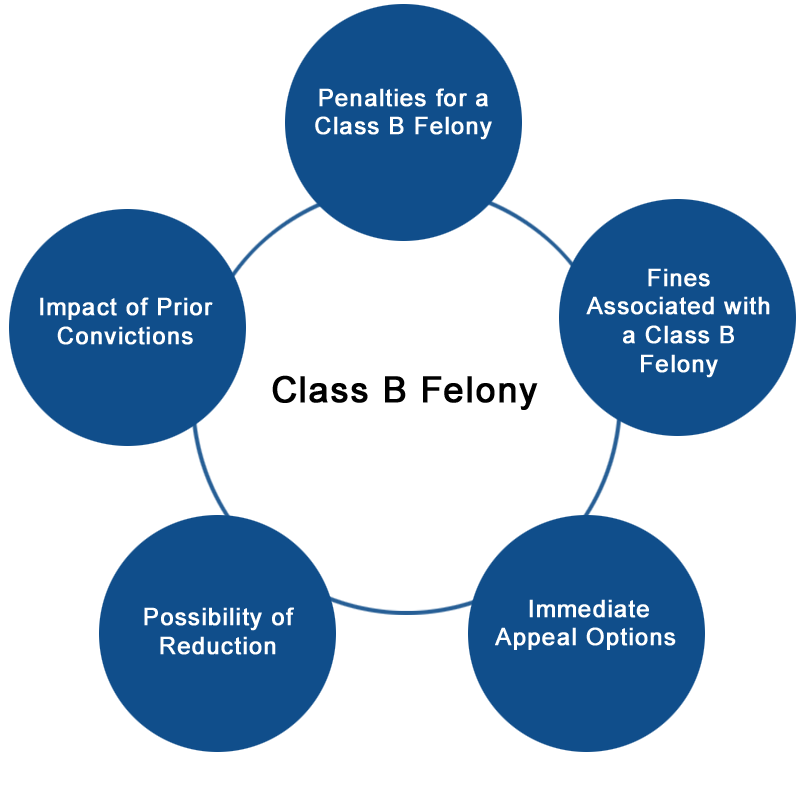 Class B Felony in Wisconsin
Class B Felony in Wisconsin
Being charged with a Class B felony brings up a lot of fear and anxiety. With so much uncertainty, it’s easy to lose hope. At Tracey Wood & Associates, we want to help you regain hope for your future. Being charged with a crime does not mean you’re going to jail. We start by providing you with educational information about the charges you’re facing, and with that knowledge comes power.
What Is the Difference Between a Felony and a Misdemeanor?
Wisconsin differentiates felonies and misdemeanors by the term of the prison sentence as well as the associated fines suggested by state law for a given crime. A suggested sentence of one year or more is considered a felony. A suggested sentence of less than one year is considered a misdemeanor.
 What Are the Penalties for a Class B Felony?
What Are the Penalties for a Class B Felony?
A Class B felony carries a suggested maximum sentence of 60 years, according to Wisconsin statute.
What Are the Fines for a Class B Felony?
Wisconsin statute does not set a limit on fines for Class B felonies.
Can You Immediately Appeal a Class B Felony?
Yes. After sentencing, we have 20 days to submit a “notice of intent to seek post-conviction relief” in order to start the appeal process. Then, depending on what kind of appeal we file, we could go back to trial court to make new arguments in the case if there was misconduct in the case, or we could go to the Court of Appeals if we’re appealing on the basis of a constitutional rights violation.
Can a Class B Felony Be Reduced to a Different Class?
Potentially, yes. We can accomplish that in one of two ways. We can negotiate a lesser sentence with the prosecutor before trial. The reduced sentence will be heard by the court, and the court then decides whether or not to accept it. Alternately, we can have something called a “lesser included offense” at trial. That way, the jury has the option to convict on a different class of felony.
What Happens to Repeat Offenders if They’re Charged with a Class B Felony?
Prior records are more likely going to result in a more severe sentence.
What Are the Civil Liberties That Are Removed from Somebody That Has a Class B Felony?
While serving your sentence, convicted felons are not able to vote. After your sentence has been completely served, including finishing all probation and paying all fines, your right to vote will be restored. Convicted felons are barred from possessing firearms and serving on juries.
Are There Ways to Get Early Parole with a Class B Felony?
Getting early parole depends on a number of different circumstances for each case.
Will a Class B Felony Conviction Cause Someone to Be Removed or Deported from the U.S.?
It depends. The kind of visa you have, the length of time you’ve been in the country, your status here, and the type of crime can all impact whether or not you’ll be deported. Some specific crimes are more likely to result in deportation, including:
- • Drug charges and controlled substance charges
- • Domestic abuse
- • Crimes of an aggravated nature
- • Crimes of moral turpitude, meaning crimes that break community moral norms
Don’t Lose Hope
Having hope for your case is the first step in this battle. You’re probably feeling worried and scared about your future. We can help calm those fears through empowerment, knowledge, and a rock-solid defense.
We listen to our clients so we can tell their side of the story in the courtroom. Your side of the story matters, and we use every tactic we know to tell it well.
Contact us today to schedule a free, no-obligation consultation, and start aggressively fighting your charges.
Call (608) 490-5779 or Schedule a Free Case Evaluation Online

